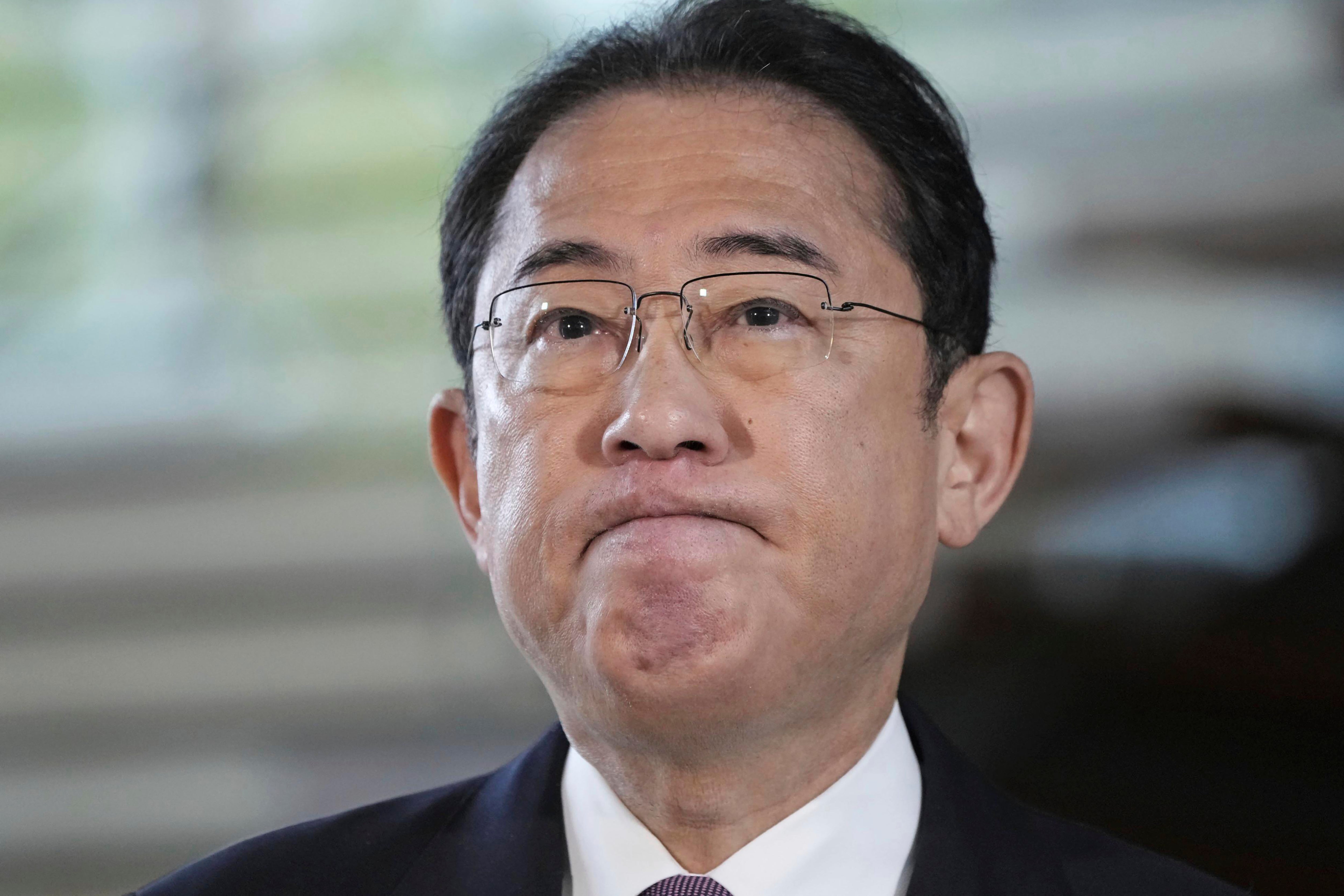Japan's PM Kishida denies he will step down over his party's loss in special elections
Japanese Prime Minister Fumio Kishida says his governing party’s major defeat in last weekend's by-elections was largely due to a political fundraising scandal and that he will not resign or replace party executives to take responsibility

Your support helps us to tell the story
From reproductive rights to climate change to Big Tech, The Independent is on the ground when the story is developing. Whether it's investigating the financials of Elon Musk's pro-Trump PAC or producing our latest documentary, 'The A Word', which shines a light on the American women fighting for reproductive rights, we know how important it is to parse out the facts from the messaging.
At such a critical moment in US history, we need reporters on the ground. Your donation allows us to keep sending journalists to speak to both sides of the story.
The Independent is trusted by Americans across the entire political spectrum. And unlike many other quality news outlets, we choose not to lock Americans out of our reporting and analysis with paywalls. We believe quality journalism should be available to everyone, paid for by those who can afford it.
Your support makes all the difference.Japanese Prime Minister Fumio Kishida said Tuesday his governing party's major defeat in last weekend's by-elections was largely due to a political fundraising scandal and that he would not step down or replace party executives to take responsibility.
Instead, Kishida said he will push anti-corruption measures and political reforms.
“As I take the results seriously, I believe as president of the governing party we must tackle the challenges we face one by one and achieve results, and this is the way I will take responsibility," Kishida said. “By doing so, I will regain the people's trust.”
Kishida said the scandal dealt “a big and heavy hinderance” to the party. The scandal centers on dozens of lawmakers in Kishida's Liberal Democratic Party who allegedly pocketed profits from ticket sales to political events by falsifying accounting reports.
Asked if he would take responsibility for the election loss, Kishida denied he would step down or replace top LDP posts, and pledged to pursue party and political reforms, including a revision to the political funds laws. He also vowed to tackle economic issues.
The conservative Liberal Democratic Party lost all three seats in Sunday's parliamentary by-elections in Nagasaki, Shimane and Tokyo. Kishida’s party only fielded its own candidate in Shimane, a conservative stronghold, while the liberal-leaning main opposition Constitutional Democratic Party of Japan clinched all three seats previously held by LDP.
The loss is seen as a punishment by voters for the governing party's scandal, which erupted last year and has undermined Kishida’s leadership.
The party is unlikely to lose power because the opposition is fractured. But Sunday's defeat marks a further setback for Kishida, who will seek reelection as his party’s leader in the fall.
Political analysts say Kishida was hoping to call a snap election possibly after the current parliamentary session ends in late June, seeking to receive a public mandate, and then win another term in the party presidential vote in September.
Kishida's state visit to the U.S. earlier this month was perceived as a success, but Sunday's losses could erode his clout and LDP lawmakers may try to bring him down in favor of a fresh face ahead of the next general election.
Such a move would make it difficult for Kishida to run for another three-year term in the party's presidential race in September. As prime minister, he can call a snap election anytime before the current term for the lower house expires in October 2025.
Kishida on Tuesday denied he has plans to call for a snap election.
He has fought plummeting approval ratings since the corruption scandal broke. He has removed a number of Cabinet ministers and others from party executive posts, conducted internal hearings and drafted reform measures, but support for his government has dwindled to around 20%.
The scandal centers on unreported political funds raised through tickets sold for party events and involved more than 80 LDP lawmakers, mostly belonging to a major party faction previously led by assassinated former Prime Minister Shinzo Abe. Ten people — lawmakers and their aides — were indicted in January.